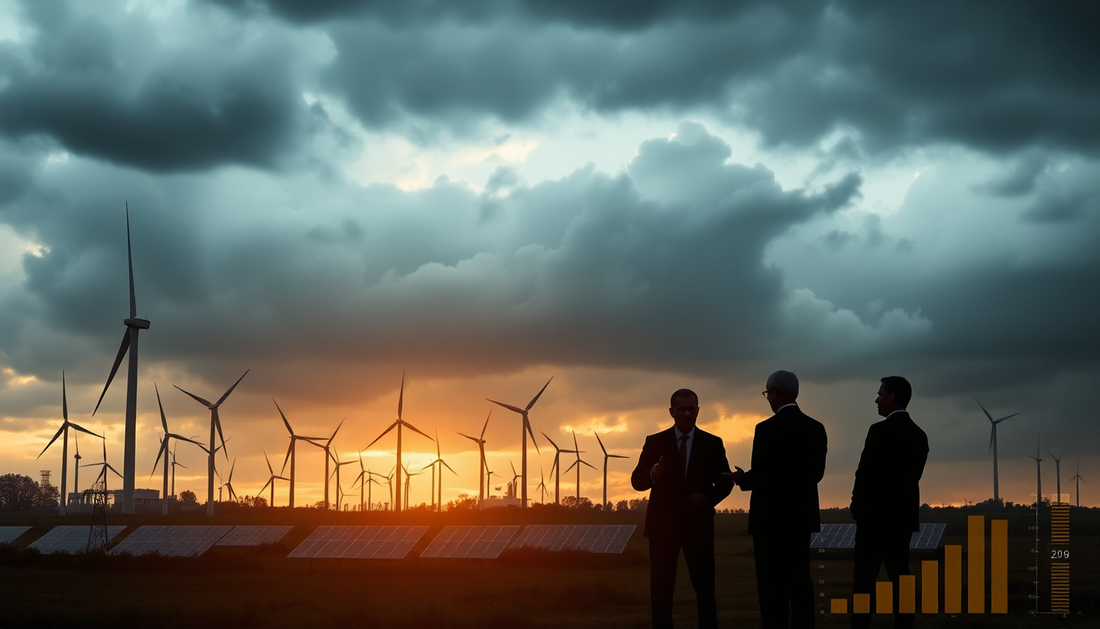Germany, the economic powerhouse of Europe, is currently facing an unprecedented energy crisis that is shaking the foundations of its political landscape. As the country grapples with the fallout from geopolitical tensions and its ambitious transition towards renewable energy, the implications for the upcoming elections are becoming increasingly clear.
Origins of the Energy Crisis
Germany's energy landscape has long been shaped by its historical dependencies on fossil fuels, particularly natural gas from Russia. This reliance has been a source of vulnerability, and the recent geopolitical tensions have only exacerbated the situation. The decision to phase out nuclear power, coupled with the accelerated transition towards renewable energy, has created a perfect storm that has left the country scrambling to secure its energy supply.
The impact of the energy crisis has been far-reaching, with the industrial sector bearing the brunt of the burden. Skyrocketing energy prices have forced many manufacturers to scale back production or even shut down entirely, leading to concerns about the long-term competitiveness of the German economy.
Economic Implications
The economic consequences of the energy crisis are already being felt by German households. Soaring electricity and heating costs have put a significant strain on family budgets, leading to growing concerns about energy poverty and the potential for social unrest.
The government's response to the crisis has been a delicate balancing act, as it seeks to protect both the industrial sector and the well-being of its citizens. Measures such as subsidies, price caps, and targeted support for vulnerable households have been implemented, but the long-term sustainability of these policies remains uncertain.
Political Dimensions
The energy crisis has become a central issue in the political discourse, with parties across the spectrum vying to present their solutions to the problem. The governing coalition, led by Chancellor Olaf Scholz, has faced criticism for its perceived slow response and lack of a cohesive long-term strategy.
The opposition parties, particularly the center-right Christian Democratic Union (CDU) and the right-wing Alternative for Germany (AfD), have seized on the energy crisis as a means to bolster their political fortunes. They have accused the government of mismanaging the transition to renewable energy and have proposed alternative approaches that prioritize the continued use of fossil fuels.
Future Energy Strategy
As Germany grapples with the immediate challenges posed by the energy crisis, the country is also facing the daunting task of developing a long-term sustainable energy strategy. Significant investments in renewable energy infrastructure, such as wind and solar power, are seen as crucial to reducing the country's reliance on imported fossil fuels.
However, the transition to a greener energy mix is not without its own set of challenges. The integration of renewable sources into the existing grid, the development of energy storage solutions, and the need for a skilled workforce to support the transition are all areas that require careful planning and execution.
Election Potential Scenarios
The energy crisis has the potential to significantly influence the outcome of the upcoming German elections. Voters are likely to be swayed by the parties' proposed solutions to the crisis, with a particular focus on their ability to balance economic concerns with environmental sustainability.
The governing coalition's ability to navigate the crisis and present a coherent long-term strategy could be a decisive factor in the election. Conversely, the opposition parties' ability to capitalize on the public's frustration with the government's handling of the crisis could also play a crucial role in the outcome.
Conclusion
The German energy crisis is a complex and multifaceted challenge that has far-reaching implications for the country's political and economic landscape. As the nation grapples with the immediate consequences of the crisis, the long-term solutions will require a delicate balance of economic, environmental, and political considerations.
The upcoming elections will serve as a crucial test for the country's political leadership, as voters seek to entrust their future to the party or coalition that can best navigate the energy crisis and chart a sustainable path forward. The outcome of these elections will not only shape Germany's energy policy but also have significant implications for the broader European and global energy landscape.

